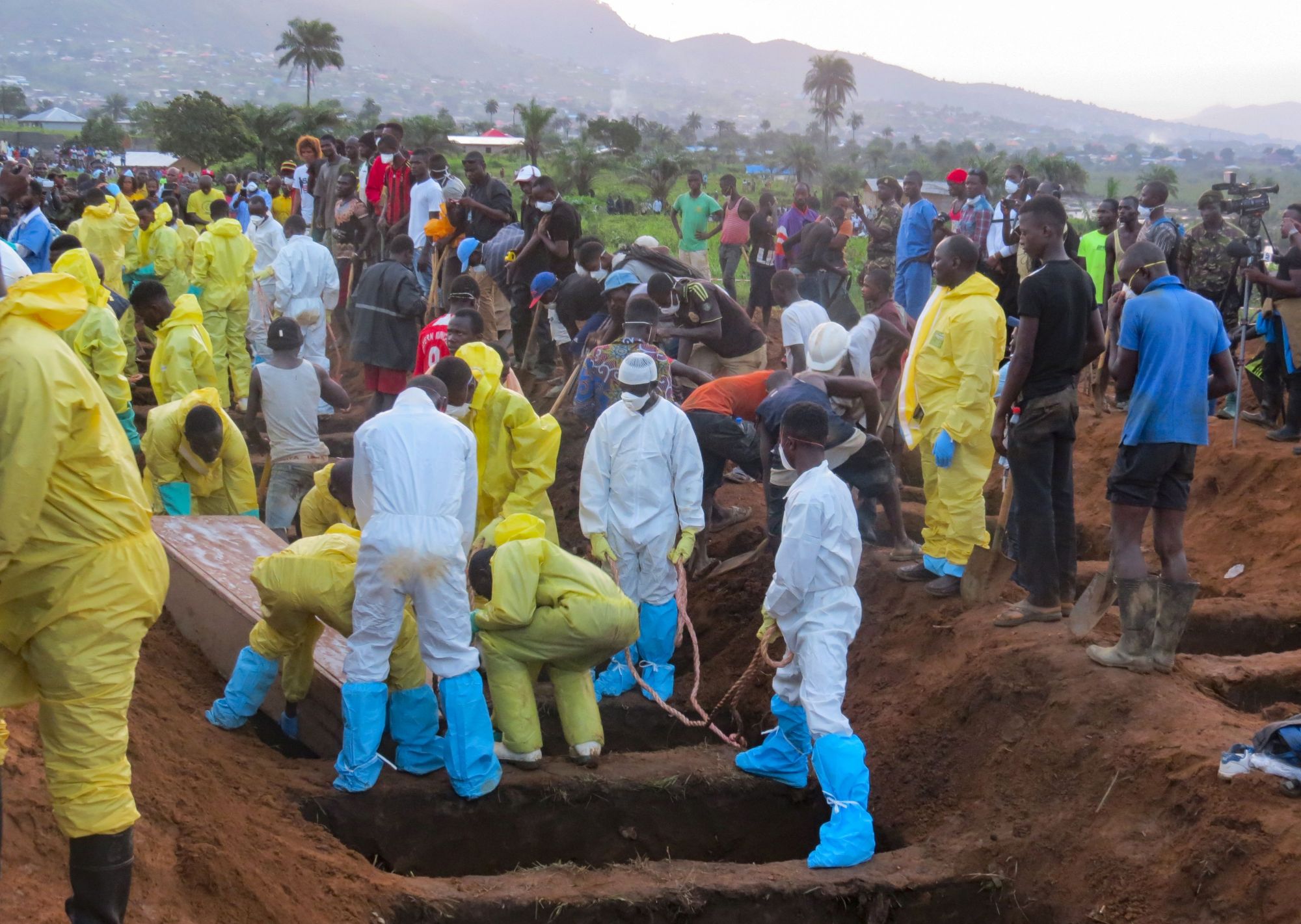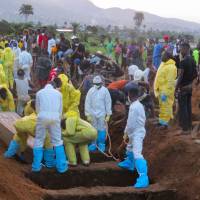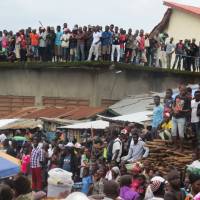Sierra Leone is bracing for more floods as the country is burying the casualties of a mudslide that killed hundreds of people in the capital, Freetown.
A mass burial for some of the more than 300 casualties is taking place on Thursday afternoon, Freetown Mayor Sam Gibson said in a broadcast on Radio Democracy. Further landslides are possible and the government may have to evacuate some areas, the United Nation's humanitarian aid coordination agency said in a statement on Thursday.
Heavy rains were reported on Tuesday and Wednesday, the European Commission's Emergency Management Service said in a statement on its website. More than 600 people remain missing and search operations are hampered by the continuous rain, the UN said.
"We want to give the victims a dignified burial," Gibson said on Thursday. Once the funeral is over "we have to start working again to prepare the minds of everybody to steer clear of dangerous locations and flood-prone areas. Everybody must be on the alert."
Monday's mudslide happened after a mountainside collapsed in Regent in the southeast of Freetown following torrential rains. The disaster came less than two years after the end of an Ebola epidemic that killed more than 11,000 people in West Africa, with Sierra Leone one of the hardest-hit countries.
Deforestation and soil erosion probably contributed to the disaster, James Kamara, a spokesman for the Environment Protection Agency, said on Radio Democracy on Wednesday.
"The cutting of teak trees and bad environmental practices affected the soil," he said. "We need to protect the environment. We have been working but we are still at the initial stages of our operations."





















With your current subscription plan you can comment on stories. However, before writing your first comment, please create a display name in the Profile section of your subscriber account page.